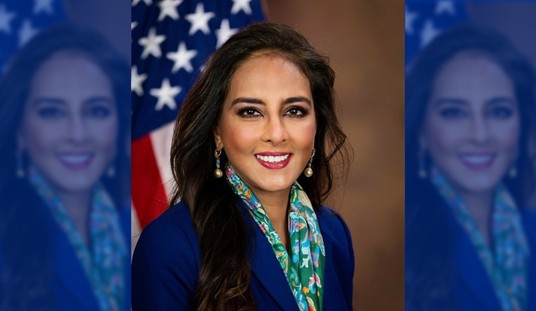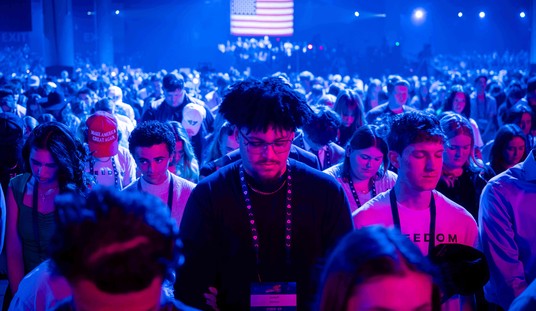
Since 1968, California has enjoyed a specific carve-out of regulatory authority under the Clean Air Act. According to the law, no state can set emissions standards in excess of federal standards except for California. This special authority was given in recognition of California’s role as a leader in limiting auto emissions and the unique smog problem facing Los Angeles at the time. (Read the history here even if the total argument is progressive nutbaggery.)
What has happened is that California is in the thrall of the climate change goober community and has set emission standards to, in their benighted view, deal with that problem. This is something not contemplated by the law. The practical effect is that California is able to set vehicle emissions standards for the entire nature by virtue of the size of the California auto market. Essentially, this lets California make law for the entire nation and it has reinforced its position by creating an unlawful interstate compact, the so-called “Section 177 states” of Connecticut, Delaware, Maine, Maryland, Massachusetts, New Jersey, New Mexico, New York, Oregon, Pennsylvania, Rhode Island, Vermont, Washington and the District of Columbia, who follow California’s lead on auto emissions.
There has been a lengthy negotiation period in which the Trump administration has attempted to negotiate with California a freeze on CAFE standards for cars and light trucks at 30 mpg rather than staying on a guide slope to require 54.5 mpg as the fleet standard. But it has gone nowhere:
There appears to have been very little movement in the negotiations since they began almost a year ago, and both sides on Thursday accused the other of negotiating in bad faith.
“Despite the administration’s best efforts to reach a common-sense solution, it is time to acknowledge that CARB has failed to put forward a productive alternative,” a White House statement said, referring to the California Air Resources Board, the state’s clean air regulator. “Accordingly, the administration is moving forward to finalize a rule later this year with the goal of promoting safer, cleaner and more affordable vehicles.”
Stanley Young, a spokesman for the air resources board, said meetings between the sides had been held but “were always at a superficial level, with no effort to engage in a conversation.”
Mandy Gunasekara, who served as principal deputy assistant administrator in the Environmental Protection Agency’s Office of Air and Radiation before leaving this month to start a private consulting business, and who was involved in the talks, said that California had put forward only one counterproposal: a plan to delay implementation of the fuel economy rules by one year. Trump officials saw that as a nonstarter.
“Looking at it now, it seems they were more interested in stalling the progress of the conversation than actually working to make a deal,” Ms. Gunasekara said.
Earlier today, President Trump announced that the administration would grant no further waivers.
…. advantage, and also due to the fact that older, highly polluting cars, will be replaced by new, extremely environmentally friendly cars. There will be very little difference in emissions between the California Standard and the new U.S. Standard, but the cars will be….
— Donald J. Trump (@realDonaldTrump) September 18, 2019
….far safer and much less expensive. Many more cars will be produced under the new and uniform standard, meaning significantly more JOBS, JOBS, JOBS! Automakers should seize this opportunity because without this alternative to California, you will be out of business.
— Donald J. Trump (@realDonaldTrump) September 18, 2019
This sets up a nasty and lengthy legal battle. The burden is on the EPA to show that:
- California was arbitrary and capricious in its finding that its standards are, in the aggregate, at least as protective of public health and welfare as applicable federal standards;
- California does not need such standards to meet compelling and extraordinary conditions; or
- such standards and accompanying enforcement procedures are not consistent with Section202(a) of the Clean Air Act.
I don’t know how well the administration has done its homework here. It also is looking at an adverse Supreme Court ruling Massachusetts vs EPA where the EPA was required to regulate carbon dioxide as a greenhouse gas and opined that states have a greater role in making these decisions because they are sovereign entities (kind of funny watching Souter, Ginsberg, and Breyer agreeing that states were anything but federal fiefdoms). In that case, Roberts issued a major dissent, so that case may or may not be a factor.
My gut is that if Trump is reelected, the waiver revocation sticks. If he doesn’t win, the case will be dropped and some kind of consent decree tossed in to make it exponentially harder for the next Republican president to try it.
=========
=========
Like what you see? Then visit my story archive.
Follow @streiffredstate
I’m on Facebook. Drop by and join the fun there.
=========
=========














Join the conversation as a VIP Member